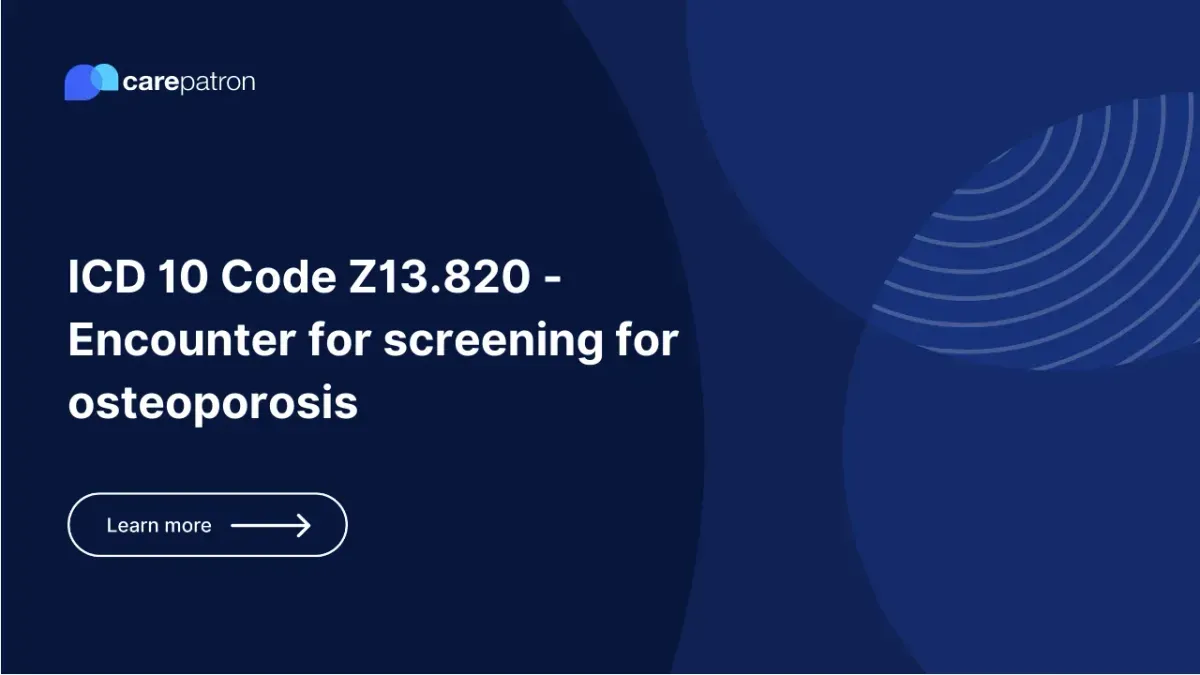
Z13.820 – Encounter for screening for osteoporosis
This short guide will help you learn what Z13.820 entails, including its clinical information, whether it's billable, FAQs, and even related ICD-10 codes.
Use Code
Commonly asked questions
Yes, the ICD-10 code Z13.820 is a billable code used for encounters for screening for osteoporosis, following proper coding guidelines.
People at risk for osteoporosis include postmenopausal women, older adults, and individuals with risk factors such as a family history of osteoporosis, low body weight, smoking, excessive alcohol consumption, low calcium intake, and certain medications.
Osteoporosis screening is important for early detection of low bone mineral density, which helps prevent fractures and supports timely intervention to improve bone health. A bone density study is essential for identifying individuals with an increased risk of fractures.
EHR and practice management software
Get started for free
*No credit card required
Free
$0/usd
Unlimited clients
Telehealth
1GB of storage
Client portal text
Automated billing and online payments
